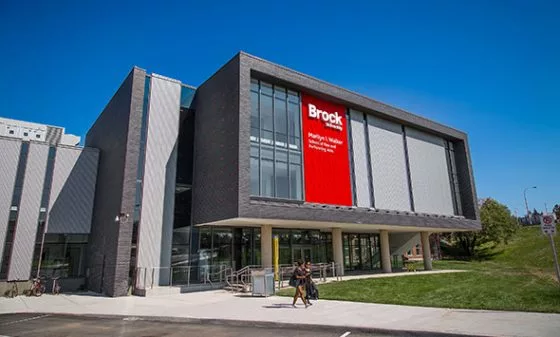Brock University Acceptance Rate — Are you curious about the acceptance rate at Brock University? Are you considering applying to this prestigious institution and want to get a better understanding of your chances of admission? Look no further! In this comprehensive guide, we will delve into the numbers and dissect Brock University’s acceptance rate, giving you all the information you need to make an informed decision.
As a highly sought-after educational institution, Brock University attracts a multitude of applicants each year, making the acceptance rate a crucial factor for prospective students. But what exactly does the acceptance rate represent? Is it a true reflection of your chances of acceptance? We will break down the acceptance rate, exploring the factors that influence it and providing you with valuable insight into what it means for your application. Whether you’re a high school student planning for your future or an aspiring transfer student, this article will equip you with the knowledge you need to navigate the admissions process at Brock University successfully.
Table of Contents
Understanding acceptance rates in the college admissions process
The college admissions process can be intimidating, with acceptance rates often being a source of stress and uncertainty for applicants. It’s important to understand what acceptance rates truly represent and how they are calculated. Acceptance rate refers to the percentage of applicants who are admitted to a particular university or college. It is calculated by dividing the number of admitted students by the total number of applicants.
Read Also: Brock University and Everything You Need to Know
Acceptance rates can vary significantly depending on the institution and the competitiveness of the applicant pool. Generally, highly selective universities have lower acceptance rates, while less competitive schools have higher acceptance rates. However, it’s essential to remember that acceptance rates are just one piece of the puzzle when considering your chances of admission.
It’s crucial to look beyond acceptance rates and consider other factors such as your academic achievements, extracurricular activities, essays, letters of recommendation, and interviews. These factors are often given significant weight in the admissions process and can make a difference in your chances of acceptance.
Understanding acceptance rates in the context of the overall admissions process will help you approach your application with a more well-rounded perspective. Remember, it’s not just about the numbers, but also about how you present yourself as a candidate.
What factors contribute to Brock University acceptance rate?
Now that we have a basic understanding of acceptance rates, let’s take a closer look at what factors contribute to Brock University’s acceptance rate. Several elements influence an institution’s acceptance rate, and understanding these factors can provide valuable insights into your chances of acceptance.
One of the most significant factors is the number of applications received by the university. As mentioned earlier, Brock University is a highly sought-after institution, attracting a large number of applicants each year. The higher the number of applications, the lower the acceptance rate is likely to be, as the university can only accommodate a limited number of students.
Read Also: How to Apply Brock University
Another factor that influences acceptance rates is the quality of the applicant pool. Brock University is known for its strong academic programs and rigorous admission standards. The university seeks to admit students who demonstrate a high level of academic achievement, leadership potential, and a genuine passion for their chosen field of study. Consequently, the competition among applicants is fierce, resulting in a lower acceptance rate.
Additionally, Brock University considers factors such as extracurricular activities, community involvement, and personal achievements when evaluating applications. The university aims to create a diverse and well-rounded student body, and these factors play a role in the admissions decision. Therefore, it’s essential to showcase your unique experiences and accomplishments in your application.
Understanding these factors can give you a better idea of what Brock University looks for in its applicants and how you can position yourself as a strong candidate.
Historical trends in Brock University acceptance rate
To gain a deeper understanding of Brock University’s acceptance rate, it’s helpful to examine historical trends. Looking at the acceptance rates over the years can provide insights into whether the rate has been consistent or if there have been significant fluctuations.
Historically, Brock University’s acceptance rate has been relatively stable. While the specific rates may vary slightly from year to year, the university has maintained a reputation for being selective in its admissions process. This stability indicates that the university’s admission standards remain consistent.
However, it’s important to note that historical acceptance rates should not be the sole basis for predicting future rates. Admissions trends can change over time due to various factors, including changes in the applicant pool, shifts in the university’s priorities, and external influences such as economic conditions or policy changes.
Therefore, while historical trends can provide some insights, it’s crucial to also consider other factors and to focus on presenting the strongest possible application to increase your chances of acceptance.
How does Brock University acceptance rate compare to other universities?
Comparing Brock University’s acceptance rate to that of other universities can help contextualize its competitiveness. While it’s important to remember that acceptance rates can fluctuate from year to year, comparing rates can provide a general sense of the university’s selectivity.
Brock University’s acceptance rate is typically lower than that of many less competitive institutions but higher than that of highly selective universities. It falls within the range of acceptance rates for similar universities in Canada, making it a moderately competitive institution.
When considering acceptance rates, it’s important to focus on finding the right fit for you rather than solely fixating on the numbers. A university’s acceptance rate does not necessarily indicate the quality of education or the overall experience it offers. Therefore, it’s crucial to consider other factors such as the programs offered, campus culture, location, and available resources when making your decision.
The impact of acceptance rate on the quality of education at Brock University
Some may wonder how acceptance rates correlate with the quality of education at Brock University. While a low acceptance rate may be seen as an indicator of a highly selective institution, it does not directly reflect the quality of education provided.
Brock University prides itself on its commitment to providing a high-quality education to its students. The university’s faculty members are renowned experts in their fields, and the curriculum is designed to foster critical thinking, innovation, and practical skills. The university also offers various resources and support systems to ensure student success.
It’s important to remember that a university’s quality of education is determined by several factors, including faculty expertise, research opportunities, class sizes, student-faculty ratio, and available resources. These factors contribute to the overall learning experience and should be considered alongside acceptance rates when evaluating the quality of education at Brock University.
Tips for prospective students applying to Brock University
Now that we have explored the acceptance rate and factors influencing admission at Brock University, let’s discuss some tips for prospective students who are considering applying to the university.
1. Start early: Begin your application process well in advance to ensure you have enough time to gather all necessary documents, complete essays, and meet deadlines.
2. Research your program: Gain a thorough understanding of the programs offered at Brock University and determine which aligns best with your interests and career goals. This will help you demonstrate your passion and commitment in your application.
3. Showcase your achievements: Highlight your academic achievements, extracurricular activities, leadership roles, and community involvement in your application. These experiences demonstrate your well-roundedness and can set you apart from other applicants.
4. Craft a strong personal statement: Your personal statement is an opportunity to showcase your unique qualities, experiences, and aspirations. Take the time to write a compelling and authentic essay that reflects your passion and potential.
5. Seek letters of recommendation: Ask teachers, mentors, or employers who know you well and can speak to your abilities and character to write letters of recommendation on your behalf. These letters can provide valuable insights into your strengths and achievements.
6. Prepare for interviews: If applicable, prepare for interviews by researching common interview questions and practicing your responses. This will help you feel more confident and articulate during the interview process.
By following these tips, you can increase your chances of submitting a strong application to Brock University and positioning yourself as a competitive candidate.
Strategies for improving your chances of acceptance at Brock University
In addition to the tips mentioned earlier, here are some strategies you can employ to enhance your chances of acceptance at Brock University:
1. Maintain a strong academic record: Focus on achieving excellent grades throughout high school or your previous academic endeavors. Demonstrating consistent academic excellence showcases your ability to succeed in a university setting.
2. Engage in extracurricular activities: Participate in activities that align with your interests and demonstrate your commitment, leadership skills, and ability to balance multiple responsibilities. This involvement showcases your ability to contribute to the university community.
3. Seek out relevant experiences: Pursue internships, volunteer opportunities, or research projects related to your chosen field of study. These experiences can demonstrate your passion, initiative, and readiness to engage in experiential learning opportunities at Brock University.
4. Prepare for standardized tests: If required, dedicate time to prepare for standardized tests such as the SAT or ACT. Familiarize yourself with the test format, practice sample questions, and consider seeking additional resources or tutoring if needed.
5. Connect with current students or alumni: Reach out to current students or alumni of Brock University to gain insights into their experiences and learn more about the university community. Their perspectives can provide valuable information and help you make an informed decision.
By implementing these strategies, you can strengthen your application and increase your chances of acceptance at Brock University.
The importance of looking beyond acceptance rates when choosing a university
While acceptance rates are an essential factor to consider when applying to universities, it’s crucial to look beyond these numbers when making your final decision. Acceptance rates alone do not provide a comprehensive understanding of a university’s culture, academic programs, resources, or campus environment.
When choosing a university, consider factors such as the programs offered, faculty expertise, research opportunities, campus facilities, location, and student support services. These elements contribute to your overall experience and can greatly impact your personal and academic growth.
Additionally, visit the campus if possible, attend virtual information sessions, and reach out to current students or alumni to gain firsthand insights into the university’s culture and community.
Remember, the right university for you is one that aligns with your academic and career goals, values, and personal preferences. By considering a holistic view of the university and looking beyond acceptance rates, you can make an informed decision that sets you up for success.
Conclusion on Brock University Acceptance Rate
Understanding and interpreting acceptance rates is crucial when considering your chances of admission to Brock University. While the acceptance rate is an important factor, it is not the sole determinant of your acceptance. By focusing on presenting a strong application, showcasing your achievements, and aligning your interests with the university’s programs, you can increase your chances of acceptance.
Remember, the admissions process is holistic, and universities consider various factors when evaluating applications. By researching, preparing, and highlighting your unique qualities, you can navigate the admissions process successfully and position yourself as a competitive candidate for Brock University.
Ultimately, the goal is to choose a university that fosters your personal and academic growth, aligns with your aspirations, and offers the resources and support you need to thrive. Good luck on your journey to Brock University!
Brock University Acceptance Rate by SchoolsinOntario



